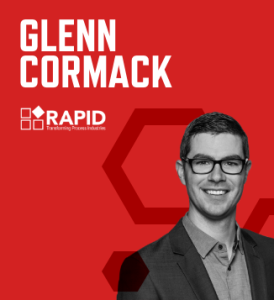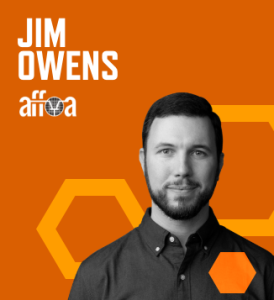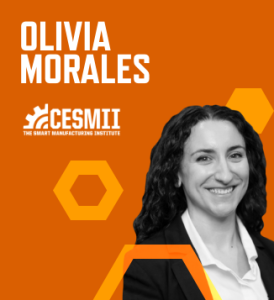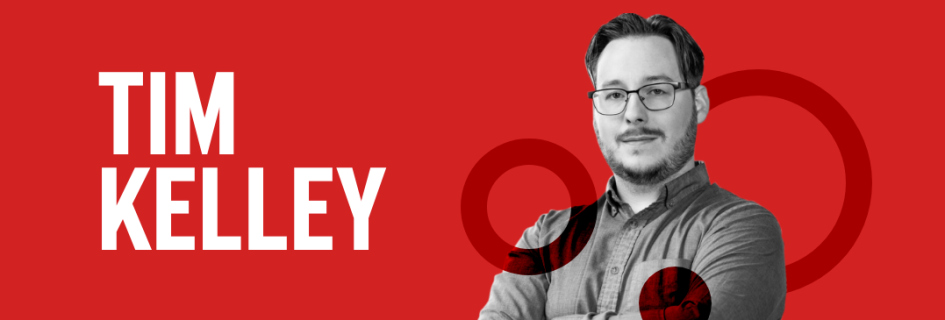
Regenerative medicine apprentice, eager scientist, sci-fi fan
Before entering advanced manufacturing as a career, Tim Kelley worked in sales for a small moving company. Tim loved science fiction, especially Michael Crichton novels, so when a former high school science teacher suggested he apply for an apprenticeship at ARMI, the Advanced Regenerative Manufacturing Institute that runs the BioFabUSA institute, he jumped at the chance. It was an opportunity to see cutting-edge science up close.
“ARMI really appealed to me because we are trying to cure diseases, not just treat them,” he said. “I really appreciate how easy ARMI made it to transition career paths. They supported me in so many ways that it was a no-brainer to switch fields. This support has continued throughout my on-the-job training as well.”
ARMI is the parent organization of the Manufacturing USA institute, BioFabUSA. ARMI | BioFabUSA is dedicated to biofabrication, which is making living things, not parts or equipment. Imagine 3D printing for cells and tissues, or tiny gardens where scientists grow cells and tissues in a lab. Only ARMI | BioFabUSA uses automation, robotics, and analytical technologies to create high-volume manufacturing processes that meet strict compliance standards.
Tim joined ARMI | BioFabUSA as a Bioprocess Technician Apprentice, which required intense focus and dedication to earn a Biofabrication Technician Certification. He assists scientists with experiments and studies involving stem cells and collaborates with lab operations.
Tim is always the first to raise his hand; he takes every opportunity to learn a new instrument or workflow and help his teammates. He is known for selflessly collaborating with other departments and stepping up to fill gaps and advance his projects even when nothing has been asked of him. In one instance, he took on important work from the Deep Tissue Characterization Center that required learning basic coding to complete the task.
Inspiring those around him by effectively modeling inclusive and collaborative leadership traits, Tim has been a positive influence within ARMI | BioFabUSA. He often organizes the other apprentices, and they often look to him for guidance as they navigate a new profession and career path together.
With a credential in Cell Culture Skills – Level 2 from the University of New Hampshire at Manchester, Tim is currently learning about stem cell protocols. He assists scientists with experiments and studies involving lab operations for a type of stem cells known as induced pluripotent stem cells, which have been changed to act like embryonic stem cells. These changes allow scientists to create new cells and tissues for research and potentially for medical treatments.
Q&A with Tim
How did you find your way to working in advanced manufacturing?
My former high school biotech teacher told me about the apprenticeship program and encouraged me to apply. I also have a friend who is a scientist who works here at ARMI who encouraged me to apply.
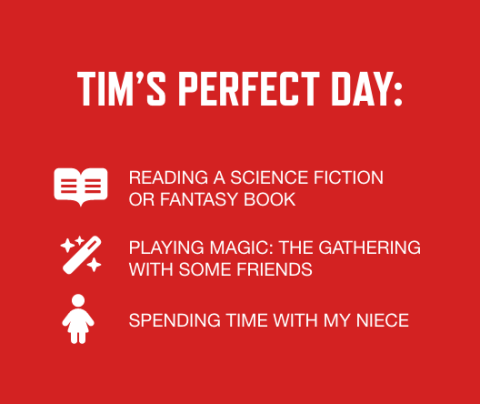
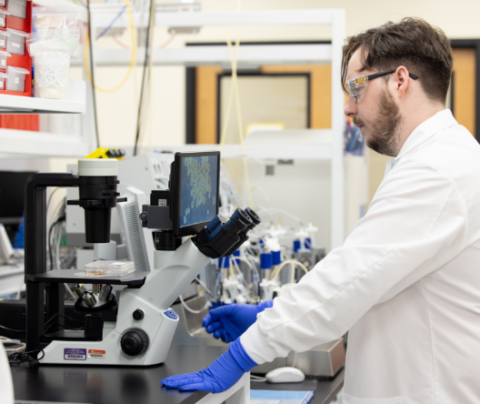
What is the most challenging part of your job?
I have to remind myself that I am still learning. It is easy to get overwhelmed when you don’t have all the knowledge.
What is the best part of your job?
Being involved in an industry that will help millions of people. It’s easy to wake up and go to work knowing you will impact many lives.
What advice do you have for someone new to the industry?
Don’t be intimidated. So many talented people will help elevate you to heights you wouldn’t have imagined.
If you didn’t have to work, how would you spend your day?
Volunteering at the Humane Society and building computers.
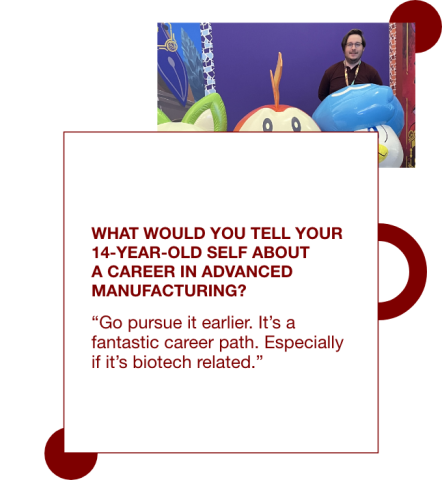
What activity gives you the most energy?
Working in the Biological Safety Cabinet (BSC) cell culturing for a work-related activity. BSC is a crucial piece of equipment that provides a sterile work environment to protect you and the cells.
When I am not at work, going to the gym gives me a lot of energy.
What hobbies make you better at your career?
Having a love for science fiction has helped me become more interested in the sciences. I have always loved the author Michael Crichton. His novels always involve science and get me interested in so many different topics.
How does the work you do impact the world?
It will provide millions of people in need of an organ the opportunity for a new organ, regardless of their access to a donor.


